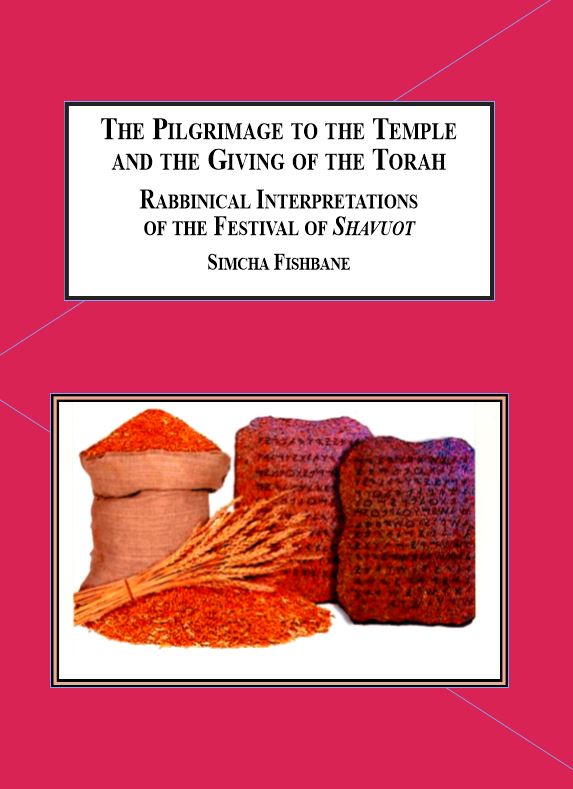The Pilgrimage to the Temple and the Giving of the Torah: Rabbinical Interpretations of the Festival of Shavuot
We are currently unable to ship to the EU countries at this time. We apologize for this inconvenience.

| Author: | Fishbane, Simcha | |
| Year: | 2017 | |
| Pages: | 76 | |
| ISBN: | 1-4955-0620-7 978-1-4955-0620-8 | |
| Price: | $79.95 + shipping | |
| (Click the PayPal button to buy) | ||
Professor Fishbane explains the Jewish festival of Shavuot, a holiday heavily associated with harvests and the Temple. once the Temple was destroyed the traditions of Shavuot continued to be celebrated thanks to Rabbinical interest that kept the traditions of the festival alive.
Reviews
"Along with Passover and Sukkot, the holiday of Shavuot ('Weeks') is one of the three pilgrimage festivals, the times when Jews would travel to the Temple in Jerusalem. From Scripture, it is clear that Shavuot was designated as an agricultural festival, a holiday associated with the crops of the land of Israel and the Temple in Jerusalem. With the destruction of the Temple in 70 C.E., all Temple-related rituals ceased; the Rabbis forbade the practice of rituals such as sacrifices, bread offerings, and water ceremonies, and the Temple service was replaced by prayer. As a festival essentially bound to the Temple and the agriculture of the land of Israel, it should have faded into obsolescence following the destruction and subsequent exile. Nevertheless, Shavuot continued to maintain its importance, with Rabbis investing Shavuot with new meaning and rituals."
Table of Contents
Shavuot and Rosh Hodesh
Custom and Ritual
The Time of Giving the Torah (Zeman Matan Toratenu)
Shavuot Rituals and Customs
Dairy Products
The Rishonim - Early Rabbinic Authorities
The Ahronim - Later Rabbinical Authorities
Decorating the Homes with Trees, Greens, and Flowers
Sephardic Customs
Hasidic Customs
The Megilla (Scroll) of Ruth
A Night of Torah Study
Akdamut Milin and Azharot
Discussion - Communal Rituals
Additional Shavuot Rituals
Concluding Remarks
Works Cited
Custom and Ritual
The Time of Giving the Torah (Zeman Matan Toratenu)
Shavuot Rituals and Customs
Dairy Products
The Rishonim - Early Rabbinic Authorities
The Ahronim - Later Rabbinical Authorities
Decorating the Homes with Trees, Greens, and Flowers
Sephardic Customs
Hasidic Customs
The Megilla (Scroll) of Ruth
A Night of Torah Study
Akdamut Milin and Azharot
Discussion - Communal Rituals
Additional Shavuot Rituals
Concluding Remarks
Works Cited
Other Jewish Studies Books
2023 - What Went on Behind the Curtain at the Nuremberg Trials? Secrets, Forgeries, Thefts, and Deals
>> See all our Jewish Studies booksMore Books by this Author
2019 - Women's Literacy in Eastern Europe During the 18th and Early 19th Centuries: The Case of Haye Adam
